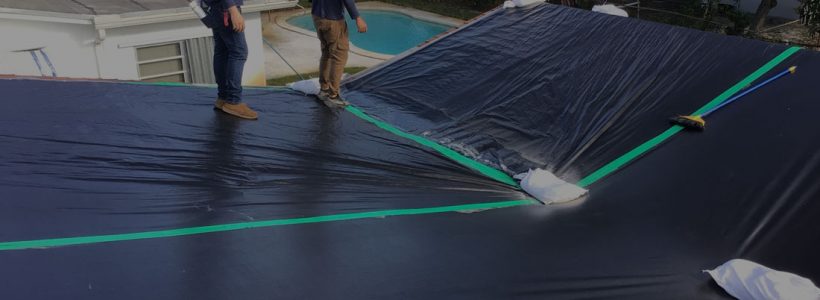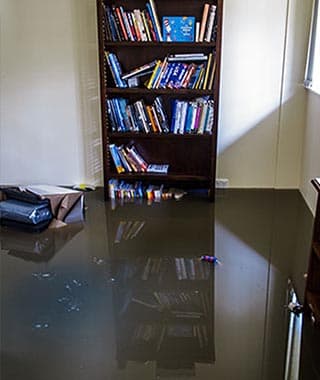As a homeowner, you may encounter situations where you’re unsure whether to install a roof tarp or wait for a roof replacement. This article will provide valuable insights to help you make an informed decision. We’ll cover the pros and cons of each option, factors to consider, and tips for making the best choice for your home. Let’s dive in!
Understanding Roof Tarps and Roof Replacements
Before we compare roof tarps and roof replacements, it’s essential to understand what each option entails.
Roof Tarps
A roof tarp is a temporary, waterproof covering installed on a damaged roof to prevent water from entering your home. It’s a popular choice for homeowners dealing with emergencies like storm damage or a leaking roof, as it provides a quick and cost-effective solution.
Roof Replacement
A roof replacement involves removing the existing roofing material and installing a new one. It’s a more permanent and comprehensive solution for damaged or aged roofs, ensuring long-term protection and durability.
Pros and Cons of Roof Tarps
To determine if installing a roof tarp is the right choice for you, let’s explore the advantages and disadvantages.
Pros:
- Quick Fix: Roof tarps can be installed quickly, providing immediate protection against water damage.
- Cost-effective: Installing a roof tarp is less expensive than a full roof replacement, making it an affordable option for temporary protection.
- Flexibility: A roof tarp allows you time to plan and budget for a more permanent solution, such as a roof replacement.
Cons:
- Temporary Solution: A roof tarp is not a long-term fix and may require frequent maintenance or replacement, especially during severe weather.
- Potential Damage: If not installed correctly, a roof tarp may cause further damage to your roof or even void your existing roofing warranty.
- Limited Protection: Roof tarps may not offer complete protection against water damage, especially if the underlying roof structure is severely compromised.
Pros and Cons of Roof Replacements
Now let’s examine the advantages and disadvantages of roof replacements.
Pros:
- Long-term Solution: A roof replacement offers lasting protection, ensuring your home is safe and dry for years to come.
- Improved Home Value: A new roof increases your property value and enhances its curb appeal.
- Energy Efficiency: Modern roofing materials provide better insulation, reducing energy costs and improving your home’s overall efficiency.
Cons:
- Cost: A roof replacement is a significant investment, which may not be feasible for all homeowners.
- Time-consuming: Replacing a roof takes longer than installing a tarp, and may require you to vacate your home during the process.
- Weather Dependency: Roof replacements are subject to weather conditions and may be delayed due to rain, snow, or high winds.
Factors to Consider When Deciding Between a Roof Tarp and Roof Replacement
Here are some crucial factors to consider when weighing your options:
Extent of Roof Damage
Assess the severity of the roof damage. If it’s a minor leak or isolated issue, a roof tarp might be a suitable temporary fix. However, if there’s extensive damage or your roof has reached its lifespan, a roof replacement might be a better long-term solution.
Budget Constraints
Consider your financial situation. If you’re on a tight budget or need more time to save for a roof replacement, a roof tarp can provide temporary relief. Just remember that it’s not a permanent solution, and you’ll eventually need to address the underlying issue.
Time Constraints
If you need an immediate solution to protect your home from water damage, a roof tarp is the quickest option. A roof replacement will take longer and may require planning and coordination with a roofing contractor.
Weather Conditions
Consider the current and upcoming weather conditions in your area. If you’re experiencing severe weather, a roof tarp might be the best short-term option to prevent further damage. However, if the weather is stable, it may be worth investing in a roof replacement to avoid ongoing maintenance.
Making the Best Decision for Your Home
Ultimately, the decision between installing a roof tarp or waiting for a roof replacement will depend on your unique situation. Consider the factors mentioned above and consult with a professional roofing contractor for expert advice tailored to your home.
If you decide to go with a roof tarp, ensure it’s installed correctly and inspected regularly. This will help minimize potential damage and prolong its effectiveness. On the other hand, if you opt for a roof replacement, take the time to research and choose high-quality materials that suit your budget and home’s needs.
In conclusion, understanding the pros and cons of roof tarps and roof replacements will help you make the best decision for your home. By considering the extent of damage, budget constraints, time constraints, and weather conditions, you can confidently choose the right solution to protect your home from water damage.










